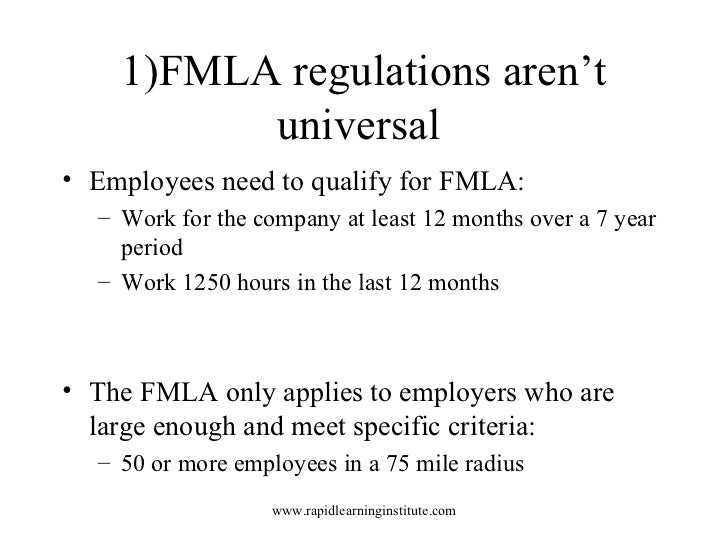5 Must-Know Facts on FMLA for Pregnant Employees

Introduction to FMLA for Pregnant Employees

Embarking on the journey of pregnancy introduces numerous changes, both in your personal life and in your professional environment. For many pregnant women, balancing the responsibilities of work with the health demands of pregnancy can be a daunting task. Fortunately, the United States has legislation in place to support expecting mothers through this transition. This legislation, known as the Family and Medical Leave Act (FMLA), provides critical protections to ensure that pregnant employees can take the necessary time off without jeopardizing their employment. This blog post will explore five must-know facts about FMLA for pregnant employees, highlighting how this act supports you during your pregnancy and after the birth of your child.
What is FMLA?

The Family and Medical Leave Act (FMLA) is a federal law that entitles eligible employees to take up to 12 weeks of unpaid, job-protected leave within a 12-month period for several family and medical reasons, including pregnancy and childbirth. Here are the key components:
- Eligibility: To be eligible, employees must have worked for their employer for at least 12 months and at least 1,250 hours during the 12 months prior to the start of the leave, and the employer must have 50 or more employees within 75 miles of the work site.
- Reasons for Leave: FMLA covers not only pregnancy but also adoption, fostering, or caring for a seriously ill family member, among other reasons.
- Job Protection: When returning from FMLA leave, employees are entitled to return to the same or an equivalent position with equivalent pay, benefits, and other employment terms.
FMLA and Pregnancy: What Pregnant Employees Need to Know

Understanding how FMLA applies specifically to pregnancy is crucial for expectant mothers:
1. Prenatal Care and Disability

Prenatal Care: FMLA allows pregnant employees to take intermittent leave or reduced work schedules for prenatal care appointments. This flexibility can be a lifesaver for managing regular check-ups without the stress of impacting your job.
🤰 Note: Remember to notify your employer about your need for leave and provide the necessary medical documentation to ensure your leave is FMLA-protected.
2. Pregnancy-related Disability

Pregnancy-related Complications: If you experience any complications during pregnancy that qualify as a "serious health condition," you're eligible for FMLA leave. Conditions such as preeclampsia, gestational diabetes, or bed rest prescribed by a healthcare provider fall under this category.
| Condition | Eligibility for FMLA |
|---|---|
| Normal Pregnancy | Yes, for prenatal care |
| Gestational Diabetes | Yes, if it requires treatment |
| Preeclampsia | Yes |

3. Maternity Leave

FMLA ensures that employees can take up to 12 weeks of unpaid leave for childbirth and bonding with the newborn or new adoption. Here's what you should consider:
- Eligibility: Both parents are eligible for FMLA leave if they meet the criteria mentioned earlier.
- Usage: The 12 weeks of leave can be used continuously or can be split into segments if necessary.
Returning to Work After Maternity Leave

One of the significant benefits of FMLA for pregnant employees is the assurance of job security upon return from leave. Here's what you should know:
1. Job Restoration

Upon your return, you must be reinstated to your former job or an equivalent one with identical employment terms:
- Equivalent Job: This means you are entitled to the same or equivalent pay, benefits, seniority, and other employment terms you held before your leave.
- Accommodations: If you need accommodations due to a pregnancy-related condition, the Pregnancy Discrimination Act (PDA) might require your employer to make reasonable accommodations.
👤 Note: Discuss any needed accommodations with HR well before your return to work to ensure a smooth transition.
2. Continuation of Benefits

While on FMLA leave:
- Your employer must continue your group health insurance coverage as if you were still working.
- Upon return, you're entitled to the same benefits you would have accrued if you hadn't taken leave.
Potential Pitfalls and How to Avoid Them

Navigating FMLA can sometimes be tricky. Here are some potential pitfalls and tips to help you avoid them:
1. Miscommunication with HR

Ensure you communicate effectively with your Human Resources department:
- Provide adequate notice of your need for leave.
- Submit all required documentation in a timely manner.
2. Timing Your Leave

Mistiming your leave can lead to:
- Reduced bonding time with your newborn or new adoption.
- Potential issues with job restoration if your leave exhausts before you're ready to return.
⏰ Note: Plan your leave carefully, considering both your health and your employer's needs.
3. Job Protection for Small Employers

Employees of companies with fewer than 50 employees within a 75-mile radius may not be eligible for FMLA leave:
- Check your state laws for similar protections.
- Seek advice from employment attorneys if you encounter issues.
Throughout your pregnancy journey, understanding your rights under FMLA is invaluable. This federal law not only provides critical support for expectant mothers but also helps in maintaining a work-life balance during this transformative period. Remember, while FMLA offers job protection and leave benefits, it's unpaid. Thus, planning financially or exploring other forms of paid leave, such as state disability insurance or employer-provided benefits, can be beneficial.
Can I use FMLA leave for both prenatal care and after my baby’s birth?

+
Yes, you can use FMLA for both prenatal care and maternity leave. However, the total leave time cannot exceed 12 weeks within the designated 12-month period.
What if my employer doesn’t qualify for FMLA?

+
If your employer doesn’t qualify for FMLA, you might still have state-specific rights or employer-provided benefits. Check with your HR department or a legal advisor for your options.
Do I need to provide medical certification for FMLA leave due to pregnancy?
+Yes, your employer can request medical certification to support your need for FMLA leave, especially if it’s for pregnancy-related disability or prenatal care.



